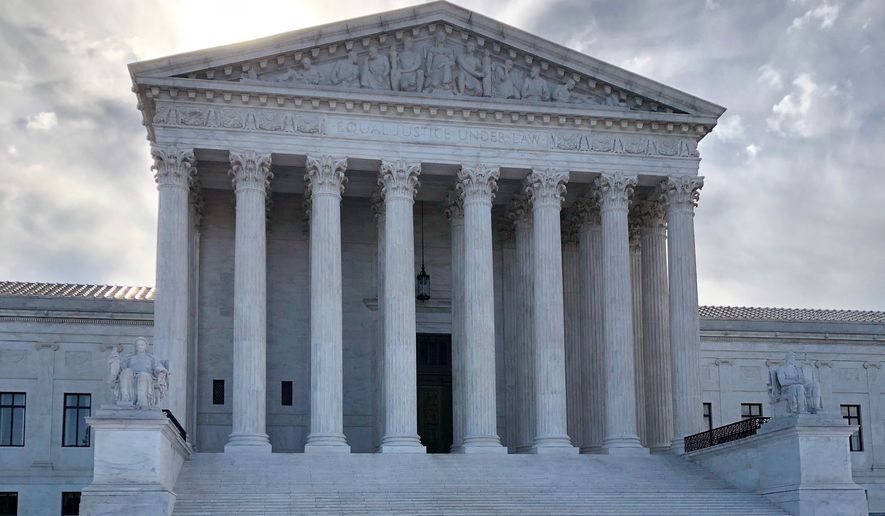The Supreme Court this week will hear two cases poised to affect the election, testing the power of presidential electors and subpoenas involving President Trump’s personal financial documents.
First up on the court’s docket Tuesday is a challenge brought by Mr. Trump against congressional Democrats’ attempts to obtain his business records and tax returns, which he refused to make public during the 2016 campaign.
The Democrat-led House Committee on Oversight and Reform last year subpoenaed eight years of Mr. Trump’s family and business accounting information.
The April 2019 subpoena sent to Mazars USA, Mr. Trump’s accounting firm, requested documents “related to work performed for President Trump and several of his business entities both before and after he took office.”
The federal appeals court in Washington, D.C. upheld the subpoena, prompting Mr. Trump’s attorneys to go to the high court, which agreed to take the case.
It was originally scheduled to be heard in March, but due to the coronavirus pandemic, the justices rescheduled it for this week via teleconference.
A similar legal battle is playing out with the state of New York after Cyrus Vance, the district attorney for the County of New York, subpoenaed nearly 10 years of Mr. Trump’s financial documents and tax returns for a criminal probe. Mr. Trump’s former personal attorney Michael Cohen was reported to be aiding Mr. Vance’s office in the investigation into the Trump Organization.
House Democrats say they need the subpoenas to be upheld so they can exercise their oversight duties. But Mr. Trump’s attorneys said the requests from both the lawmakers and the district attorney are unconstitutional, violate the separation of powers, and are politically motivated.
“The Constitution — not Congress — created the Office of the President. Congress, accordingly, cannot require the President to disclose his finances or otherwise expand or alter the office’s qualifications,” the president’s attorneys argued in court papers.
The oral arguments about the legality of the subpoenas will be argued Tuesday morning,
The following day, the justices will grapple with the independence of Electoral College electors and whether they can cast their vote for president contrary to the popular vote in their state.
The challenge comes after Washington state’s Supreme Court upheld fines against three 2016 presidential electors who violated a state law by not casting their votes for Hillary Clinton and Tim Kaine, the Democratic ticket that won the popular vote in the state.
The electors challenged Washington’s law as a violation of the Constitution, noting the 10th U.S. Circuit Court of Appeals ruled in a similar case out of Colorado that individuals “are free to vote as they choose” in the Electoral College.
Advocates seeking the high court’s review on the matter noted that in 2016, 10 out of the 538 presidential electors either voted or attempted to vote for candidates other than the candidates to whom they were pledged.
“A swing by that same number of electors would have changed the results in five of fifty-eight prior presidential elections,” they argued in court papers. “And as the demographics of the United States indicate that contests will become even closer, there is a significant probability that such swings could force this Court to resolve the question of electoral freedom within the context of an ongoing contest.”
Nearly 30 states legally require their presidential electors to vote for the president and vice president picked by the voters.
The justices are expected to issue decisions in both cases by the end of June.
• Alex Swoyer can be reached at aswoyer@washingtontimes.com.




Please read our comment policy before commenting.